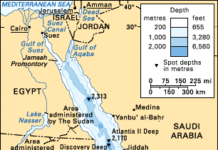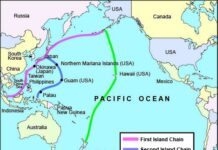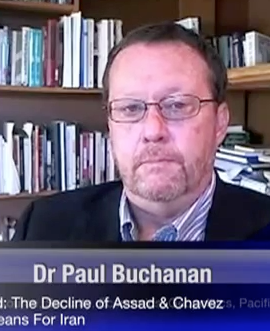Deconstructing New Zealand Foreign Policy.
Analysis – By Dr. Paul G. Buchanan.
 Introduction: New Zealand’s post-Cold War foreign policy has been characterized by a pragmatic orientation in which matters of principle are balanced against objective assessments of interest. In recent years the commitment to the “principled but pragmatic” foreign policy has come into question, as has the “independent and autonomous” foreign policy stance that was New Zealand’s signature characteristic in the latter stages of the Cold War. 36th Parallel Assessments analyzes the causes and consequences of this apparent evolution.
Introduction: New Zealand’s post-Cold War foreign policy has been characterized by a pragmatic orientation in which matters of principle are balanced against objective assessments of interest. In recent years the commitment to the “principled but pragmatic” foreign policy has come into question, as has the “independent and autonomous” foreign policy stance that was New Zealand’s signature characteristic in the latter stages of the Cold War. 36th Parallel Assessments analyzes the causes and consequences of this apparent evolution.For more than two decades New Zealand has stood on what it defines as a “pragmatic” foreign policy. As a geographically isolated, trade dependent maritime state with a small population, it has few geopolitical sources of leverage in the international arena. It has made up for this with a foreign policy platform rooted in comparative (and more recently competitive) advantages in trade and an independent approach to global diplomatic and security issues. This was seen in its early and persistent opposition to nuclear testing in the South Pacific, which resulted not only in adoption of a non-nuclear policy by New Zealand in 1985 but also in the suspension of French testing in the 1990s.
Diversification of post-colonial trade relationships began with the loss of most favored trade status in the UK in 1970, and accelerated with the liberalization of Asian trade markets in the 1990s. To that was added an autonomous diplomatic stance that saw New Zealand champion the causes of nonproliferation (both nuclear and with regard to other indiscriminate weapons such as land mines), multilateralism in conflict and dispute resolution, human rights, environmental change, limits on commercial whaling and a number of other important policy areas in multinational fora. The latter included New Zealand commitment to building strong multilateral institutions as well as materially supporting the activities of those institutions by such actions as committing troops to international peacekeeping missions and funds and physical aid to multilateral development projects in disadvantaged societies. The combination came to be known as an independent and autonomous, principled but pragmatic foreign policy.
The foreign policy platform that developed after 1985 consisted of three strands of thought (as variations of international relations theory): realism (late modified to neo-realism), idealism, and constructivism. The idealist streak is seen in the anti-nuclear and non-proliferation policy and commitment to international human rights, but is also seen in the zealous pursuit of “free” trade as a macroeconomic panacea. The constructivist streak is seen in New Zealand support for multilateral institutions, whereby New Zealand provides funding and personnel for international agencies and non-governmental organizations (a regional example would be New Zealand seconding of officials to the RAMSI mission in the Solomon Islands). The realist component is the most developed, historically grounded and intellectually influential aspect of the pragmatic foreign policy. It is seen in an ongoing security orientation towards the West, even if less US oriented than before the dissolution of the ANZUS security pact over the non-nuclear decision. The end of the Cold War proved advantageous in that regard, as New Zealand was already developing new multilateral security ties when the Berlin Wall came down and was therefore better able to weather the dislocations in the post Cold War international security regime brought about by the dissolution of the bipolar balance of power. The turn away from rigid security alliances and towards flexible multilateral trade unconnected to them sparked the shift from realism to neo-realism. When combined together in an increasingly multipolar and globalized world, the theoretical underpinnings of New Zealand’s independent and autonomous, principled but pragmatic foreign policy appeared to be a good fit that reaped dividends on several fronts.
During the 1990s there was a bipartisan consensus betwen Labour and National with regard to the general contours of the principled but pragmatic foreign policy. The core belief was to act on principle when possible but to act pragmatically when necessary. This did not change with the advent of the multiple member party (MMP) electoral system in 1996, since the only minority party that took ongoing interest in foreign affairs was the Green Party, and it did not gain more than eight percent of the popular vote until 2011.
9/11 and the emergence of regional powers such as Brazil, Russia, India and China (the so-called “BRICs”), coupled with the rapid expansion of international trade networks, put the independent and autonomous, principled but pragmatic foreign policy consensus under pressure. The cleavage was not so much on the ” look East on trade, look West on security” orientation that had developed during the previous decade, but on the depth of alignments and the best approach: Labour prefers relatively flexible or “soft” partnerships with a priority given to multilateral approaches, whereas National prefers stronger alliances constructed via bilateral or limited number multinational negotiations. Although there continued to be overlap and convergence betwen the major parties with regards to trade, the increasingly multipolar (and polarized) nature of the post 9/11 international environment brought out the more subtle differences in the non-trade dimensions of their respective foreign policy platforms.
In recent years the basis of New Zealand’s principled but pragmatic foreign policy has come into question, as well as the commitment to the policy by individual governments. The apparent move away from long-standing foreign policy continuity is due to internal and external factors in the form of the ideological shifts within a New Zealand foreign policy elite grappling with the changing international environment after 9/11 amid rapid advances in telecommunications, transportation, robotics, commerce and cross-border exchange.
The emphasis on trade, the diminution of focus on traditional diplomatic areas of strength such as on non-proliferation, environmental and human rights issues, and the post 9/11 pursuit of closer security ties with the US at a time when New Zealand’s economic fortunes and orientation are increasingly rooted in Asia and the Middle East has led to some speculation about the coherence of the current foreign policy stance as well as the strength of its intellectual underpinnings.
Added to the mix are the cost-cutting priorities of the National government, which has seen public airing of discontent on the part of the New Zealand diplomatic corps about the proposals aired by their Minister and the Ministry Chief Executive with regard to the economic management of the foreign affairs bureaucracy. This includes those responsible for the provision of developmental assistance, who have undergone a change in mandate from humanitarian assistance to business promotion in the South Pacific and elsewhere.
At the broadest level, New Zealand no longer appears to have strong grounding in any one foreign policy school of thought. Although it can still be considered pragmatic at its core, it does not adhere to basic tenets of realist, idealist or constructivist thinking, and instead appears to be opportunistic and short-term in orientation. The primacy of international market economics has become the under-riding foreign policy principle, to which all diplomatic engagement is, if not subsumed, forced to pass through as a filter before implemented. This has been seen not only in the re-orientation of New Zealand foreign aid from humanitarian assistance to business promotion, but also in the subordination of traditional diplomatic areas of strength such as nuclear non-proliferation to trade interests. That is evident in New Zealand silence on the subject of the Iranian nuclear program, where interest in the growing trade relationship with the Persian regime appears to outweigh New Zealand’s long-term commitment to lead, or at least mediate, on matters of nuclear disarmament and non-proliferation (and which stands in contrast to New Zealand’s role in mediating the ongoing dispute about the North Korean nuclear program under the previous Labour government).
There is also a degree of ideological zealotry (as a form of idealism) at play within New Zealand’s current foreign policy stance. Slowly but surely, over the last fifteen years a group of committed trade advocates have come to dominate New Zealand’s foreign policy approach, to the point that rather than the Ministry of Foreign Affairs and Trade, the line is that it is now a Ministry of Trade and Foreign Affairs. The “trade for trade’s sake” approach has seen New Zealand engage with regimes with deplorable human rights records and with countries that are serial weapons proliferators or in which it has little diplomatic expertise or even language capabilities (such as current trade negotiations with Kazakstan and Belarus, which are being conducted under the auspices of Russia as a vested third party in any potential deal. That none of those three countries have experience with international trade regimes (Russia has only recently joined the World Trade Organization), or that New Zealand must use Russian translators for its interaction with the Belarusian and Kazak counterparts, does not appear to have been given much thought or importance by New Zealand’s negotiators). New Zealand no longer speaks of the need to engage disreputable regimes via trade as a means of altering the latter’s behavior. In the current context, the New Zealand argument on trade is only about a rising tide floating all boats.
There may be an element of incoherence or at least naiveté on the part of New Zealand’s foreign policy architects when it comes to the relationship of security and trade. New Zealand claims to be “friends of many and enemy of none.” However, in deepening its trade relationship with the People’s Republic of China simultaneously with re-building full security ties with the US at a time when the two great powers are increasingly at odds with regards to their interests in the evolving Western Pacific status quo, it is walking a diplomatic tightrope that has the potential to become a modern day Melian Dilemma: if the US and PRC enter into open strategic competition, then, as a small dependent country, New Zealand may be forced to choose its preferred partner, leading to negative consequences either way. This diplomatic innocence is seen in the New Zealand’s position on the Trans Pacific Partnership (TPP) negotiations, in which its commitment to the multinational trade pact seems uninformed by the clear use of the TPP by the US as an economic hedge against continued Chinese economic expansion in the Asia-Pacific region. While other small countries are involved in the TPP, none has the bi-lateral economic dependence on the PRC that New Zealand does. Nor will the TPP replace Chinese markets and investment in the event of PRC economic retaliation (unlike Australia, New Zealand does not have the type of primary resource exports that are essential for continued Chinese growth nor does it have a comparable internal market). Thus, even if the TPP is seen by New Zealand as an hedge against economic dependence on the PRC (and that has never been claimed), strengthening of security and economic ties with the US could have the perverse effect of terminally alienating New Zealand’s largest Asian trade partner at a time when it can ill-afford an economic rupture of any sort.
Moreover, the idea that countries have “friends” and “enemies” moves away from the realist notion of interests being the determinant of foreign policy behavior, where calculations of relative power are the best guide to foreign policy engagement. Erosion of this intellectual foundation of New Zealand foreign policy thought has not been replaced by a substantial move towards idealism (except in trade) or constructivism (since if anything New Zealand has diminished its support for multilateral institutions in favor of bilateral or small-number multilateral engagement), Hollowed out in such a way, what is left of the principled but pragmatic foreign policy is neither commitment to principle or pragmatic long-term strategic calculation.
The shift away from principle and pragmatism appears to be rooted in the ascendency of trade zealots and cost-cutting “bean counters” within the New Zealand foreign policy elite, something that has come at the expense of traditional diplomats and which is abetted by the lack of experience and intellectual depth of the politicians who serve as ministers in the areas of foreign affairs, international security and intelligence. It is compounded by problems with recruitment and retention. Retirement or resignation of senior diplomatic staff, with the attendant loss of the wealth of experience and networks that they developed over time, is worsened by troubles in recruiting new diplomatic talent in light of decreased job security and better paid alternatives in the private sector.
This is backdropped against a thin talent bench when it comes to indigenous foreign policy expertise and public disinterest in foreign affairs except during times of crisis or scandal. Both of these traits are generic to small nations, which makes remarkable New Zealand’s past reputation for punching above its weight in international affairs. However, coupled with a reduction in its diplomatic presence abroad and decreased funding for foreign affairs and defense, the combination outlined above has left New Zealand foreign policy seemingly adrift and has raised questions amongst some of its diplomatic interlocutors as to the sustainability of its international position over the long run.
Should Labour return to government in 2014 there is a possibility for some reversal of the trend, since it has expressed a conviction that New Zealand’s independence and multilateralist orientation need to be resurrected as part of re-building the principled but pragmatic, independent and autonomous reputation. However, National is committed to undertaking substantial reforms in the public sector that will make difficult a quick return to the past, so even in the event it loses the next election its legacy in foreign affairs as well as other policy areas will be difficult to overturn in the short to medium term. In any case, as befits its trade-dependent status, New Zealand will continue to champion open commerce and exchange as the guiding principle of international economics well into the next decade regardless of who is in government, perhaps mitigated by non-trade concerns in the event that Labour returns to power.
Links:
- Victoria.ac.nz – Working_Papers (pdf)
- Arts.auckland.ac.nz – New Zealand Foreign Policy Research Archive
- Mfat.govt.nz – Statement-of-Intent Strategic Direction
- Teara.govt.nz – Foreign Policy and Diplomatic Representation
- Aid.govt.nz
- National.org.nz FA Lowres (pdf)
- PNZ.sagepub.com
- Ingentaconnect.com











